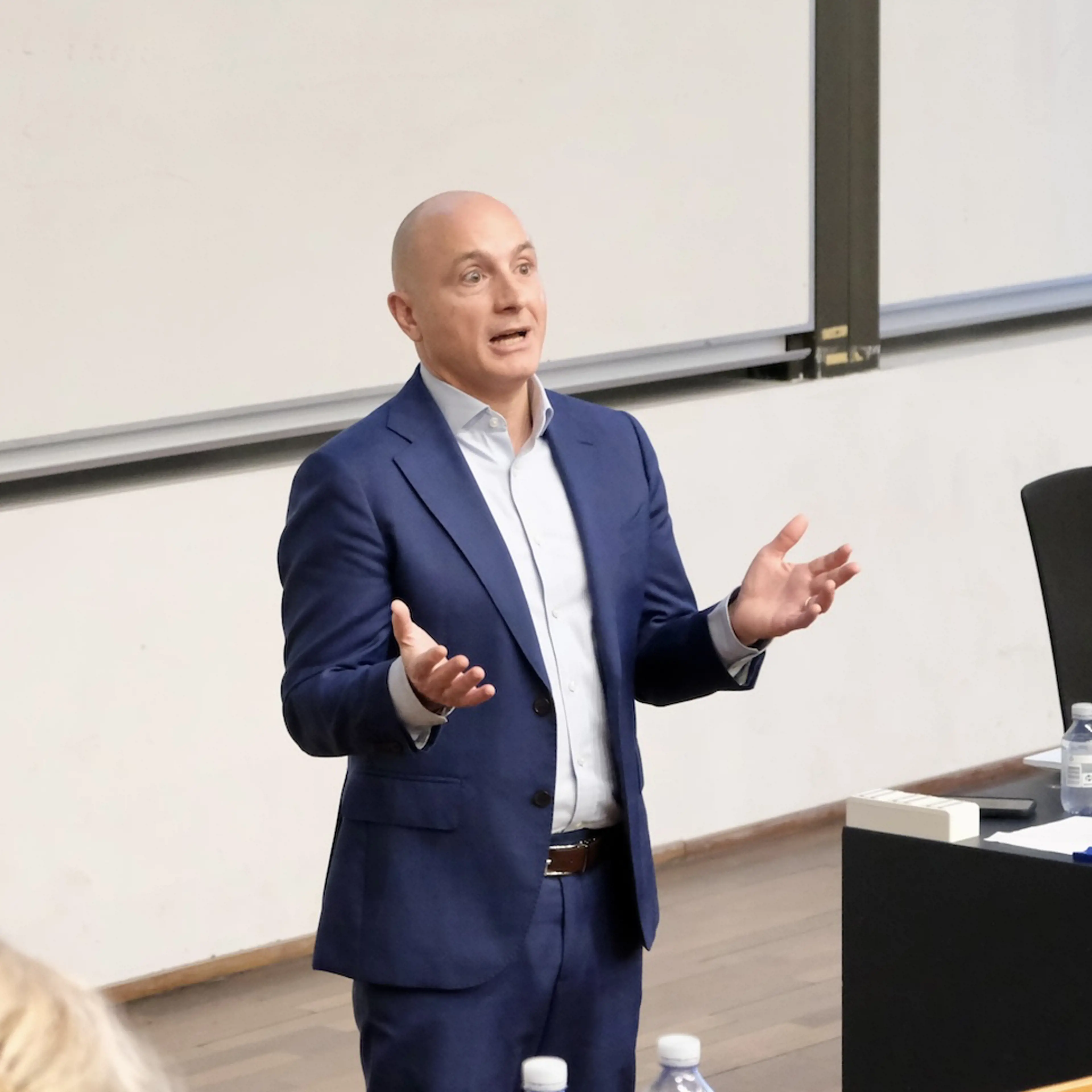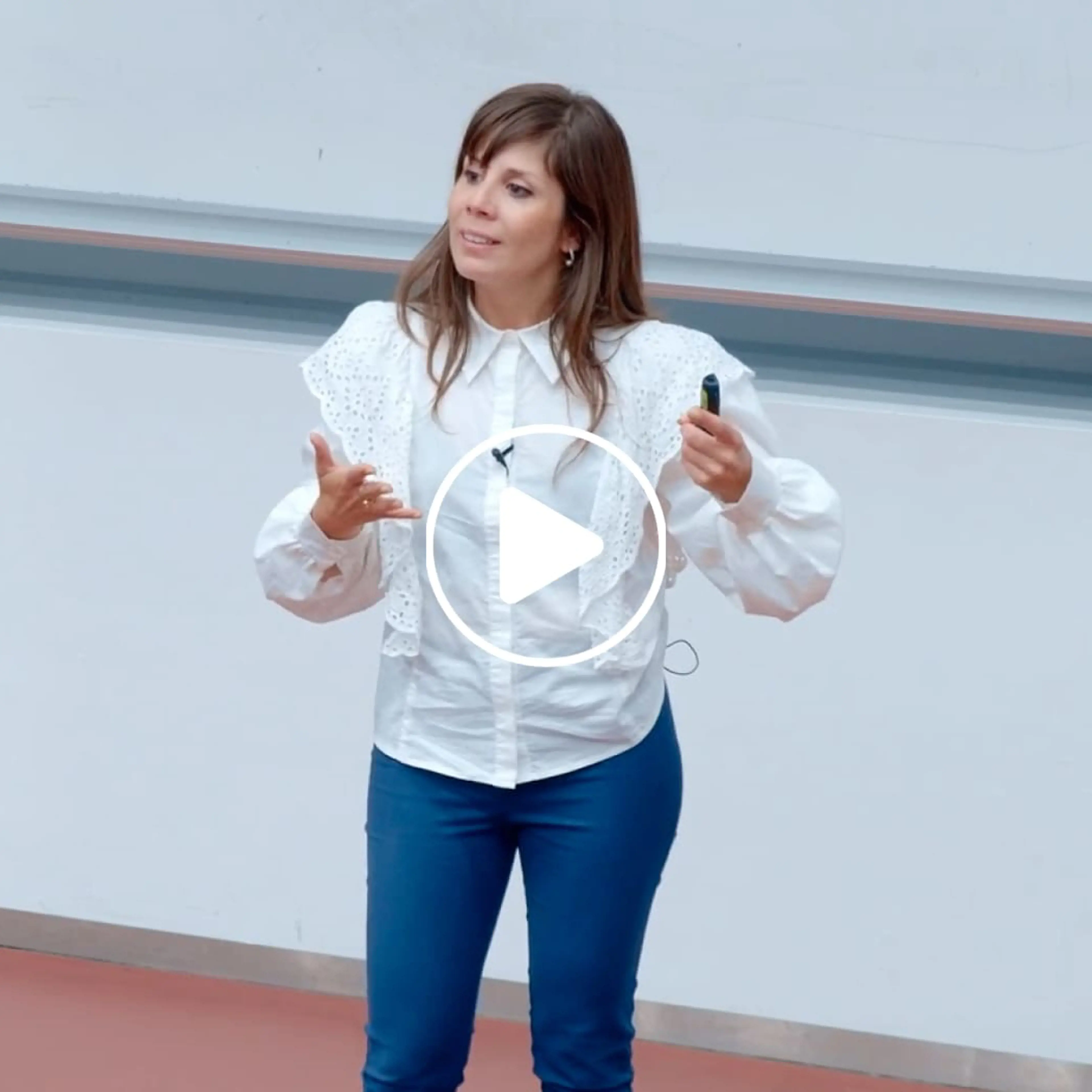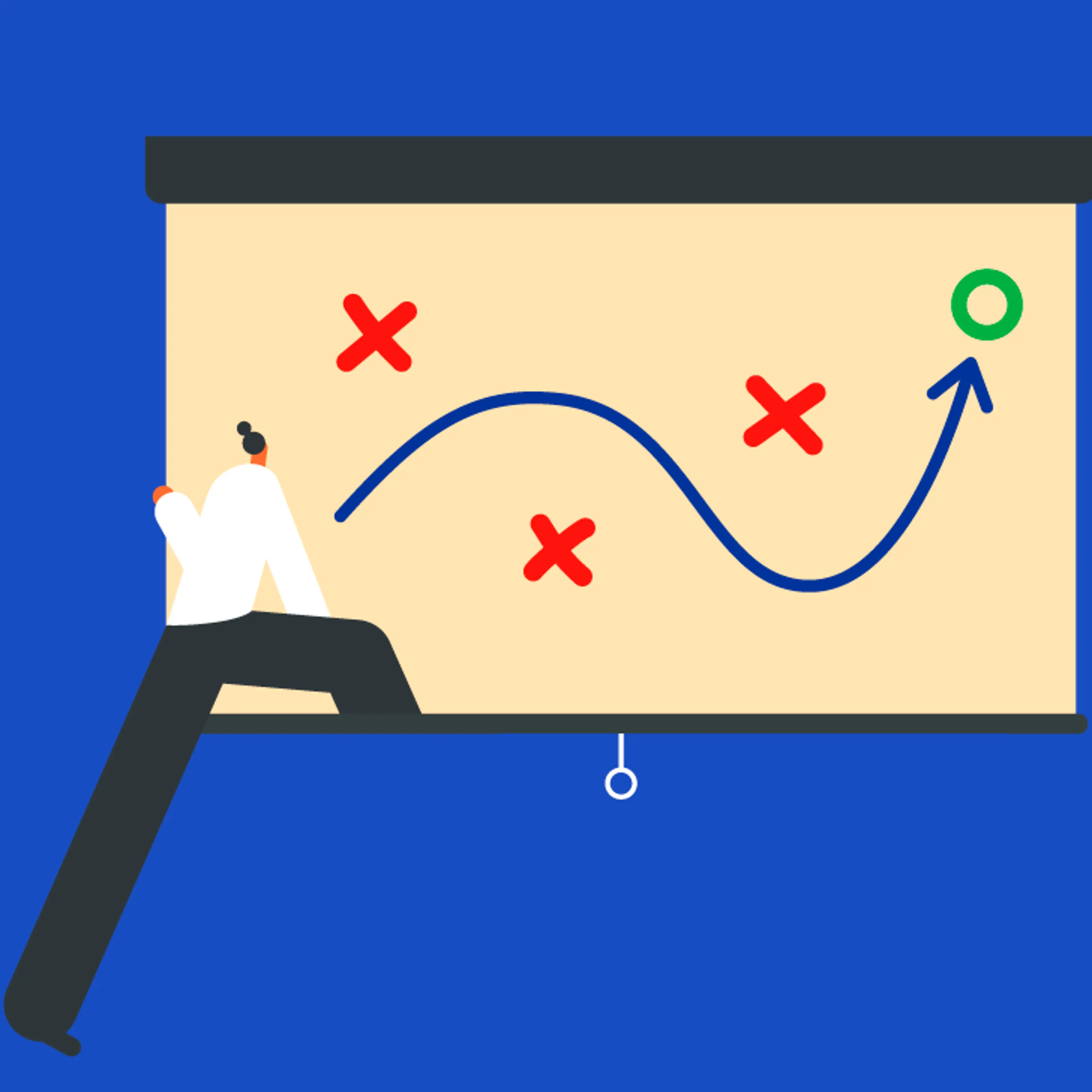Listen to Miriam Feuls talk about the challenges and opportunities for the green transition. Miriam is an Assistant Professor at the Department of Organisation at CBS.
Green transition: How can companies navigate the unknown future?
Companies have increasingly made binding commitments to become carbon neutral by 2050, but how can you make decisions when the future is distant and the paths to get there are unknown? In this video, Miriam Feuls, Assistant Professor at CBS, talks about how companies navigate the climate challenge and make distant futures actionable.
Navigating unknown futures
Committing to distant climate goals has significant implications for companies. Managers must find new ways to steer the company into a distant future, and they must find new ways to invest in innovation, all while being disrupted by unforeseen events such as the COVID-19 pandemic or the war in Ukraine. However, it remains a particular challenge to plan for a future about which we know little. The paths towards distant futures can only be partially anticipated as many solutions, mechanisms and actors do not exist at present.
It is such issues that have been the foundation of Miriam Feuls’ research. Together with her colleagues from the Centre for Organisation and Time at Copenhagen Business School, she conducts the research project ‘Making distant futures actionable’ funded by the Novo Nordisk Foundation. The research project studies pioneers and their practices leading the green transition in Danish industry: energy (Ørsted), food (Arla Foods) and life science (Novo Nordisk).
“We can see in our research that the unknowability of the distant future can be both a challenge and an opportunity at the same time”, says Miriam in the video, where she also presents some of the initial ideas of how companies navigate the unknown. While it is common knowledge that a distant-future focus allows companies to think big or be bolder, a short-term focus helps create accountability: “But there is no trade-off between the two. Short-term thinking is essential for thinking for the long-term, just as long-term thinking is essential for the short-term. […] If companies take this seriously, they can prevent themselves from slipping into incrementalism or relying on future solutions that remain too abstract to pursue”, Miriam explains.
Did you find this content interesting? Sign up for our newsletter and gain access to more of our research findings and events.
With the world’s grand challenges awaiting us, we need to continuously evolve, gain new knowledge and insights, and upskill.
Dive into a world of knowledge by signing up below. You will get:
- Personal event invitations
- Pertinent research-based insights on business and society
- Information about the next intakes of our Executive Education programmes and courses



